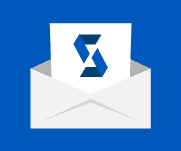It's the question that every job interviewee dreads. But how should you answer it? Do you keep it formal and job-focused, or reel off your hobbies and out-of-work pleasures? Jon weighs in with his thoughts - not only for job candidates, but for interviewers who are thinking of asking the question...
Few would argue if I say that going for a job interview is a pretty stressful occasion. You’ve got to dig out your good suit, research the company, polish your shoes and try not to get lost on the way there. And that’s before it even starts. Once you’re sat down, the fun really begins. They ask you one question after another as you attempt to craft a response that matches what you think they want to hear.
It’s horrible.
Most interview questions are a pain to answer, but for me none are as bad as “Tell me about yourself”. It’s a vague, broad and frustrating thing to be asked in an already tense and awkward interaction.

Don’t tell them your life story
When someone asks you this question in a software testing interview, bear in mind that they don’t want to know where you like to go on holiday, or what video games you’re currently playing, or how much you like going to the pub. And if you start reeling off an online dating profile, it will likely do you more harm than good. It’s a safe bet that your interests, beliefs and passions will differ from those of the interviewers, and highlighting this fact is only going to add to any distance between you and them.
More importantly, it doesn’t matter. As an interviewer, I honestly don’t care what football team you support or how much you enjoy jogging. It doesn’t help me to evaluate your suitability for the role and it just wastes valuable time when you could be telling me something with greater relevance.
Sell yourself
The entire point of the question is to essentially give you an opportunity to sell yourself; to describe a person that they’d want to hire. You need to be highlighting your strengths and pushing the things that make you stand out. If you’re going to give examples to aid your self-sale, make sure you limit them to work-related anecdotes.
You also should be focusing on skills and traits that lend themselves to the specific role. For example, if it’s a management role, emphasise your leadership and people skills. If it’s a technical role, talk about how you’re a quick learner and give examples to support. Use the broad nature of the question to your advantage and paint the picture you want to paint. You’ve got the floor so use it wisely.
A note for interviewers
Having said all this, if you’re reading this and are planning to recruit in the near future, please, oh please, throw this question in the bin. It’s an awful question and all it achieves is putting the applicant on edge which will force them back into their shell.
Instead, ask a question relating to the job itself, a question that allows them to show off their knowledge and skills. Give them something that will encourage them to become fired up and demonstrate a passion and understanding for the profession. It doesn’t help anyone to add more tension and pain to an already awkward situation. Think about questions that you’d feel comfortable answering yourself, and keep the focus on subjects relevant to the role.
In Conclusion
The reality is that job interviews in their current form do little to help the applicant demonstrate an ability to perform in a role, and questions like this epitomise the problem. I’m starting to see a change in approach slowly creeping in, but that will likely take time to spread across the industry. Until then though, just remember that you’re not creating a dating profile so keep it relevant, and tailor your answers to the job description.

